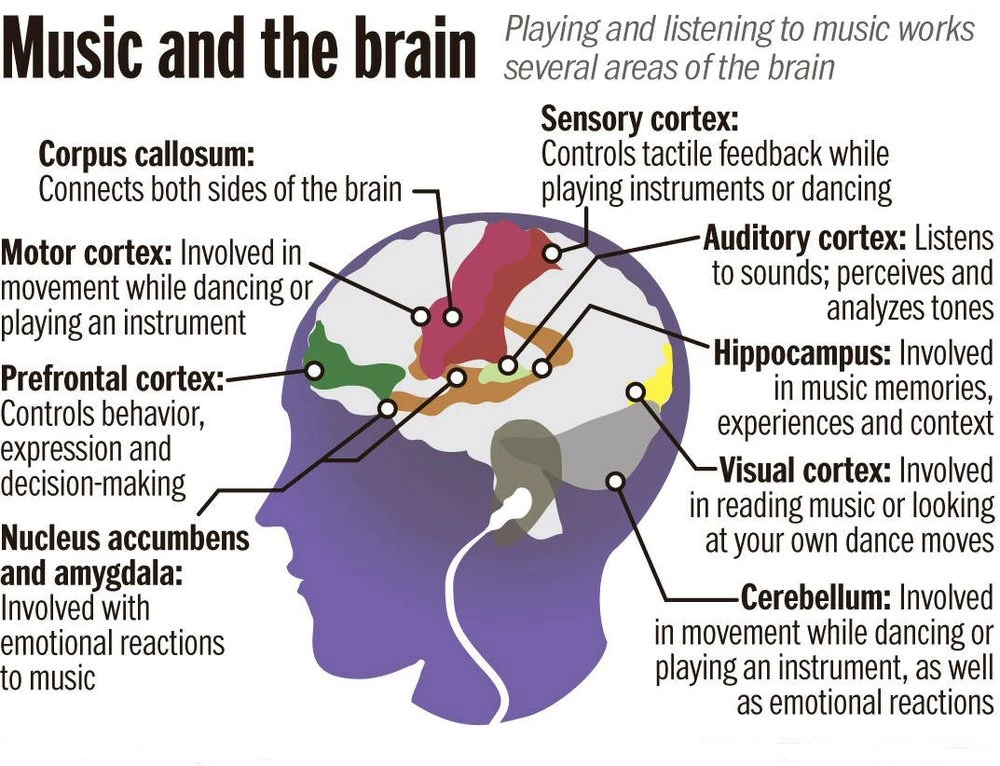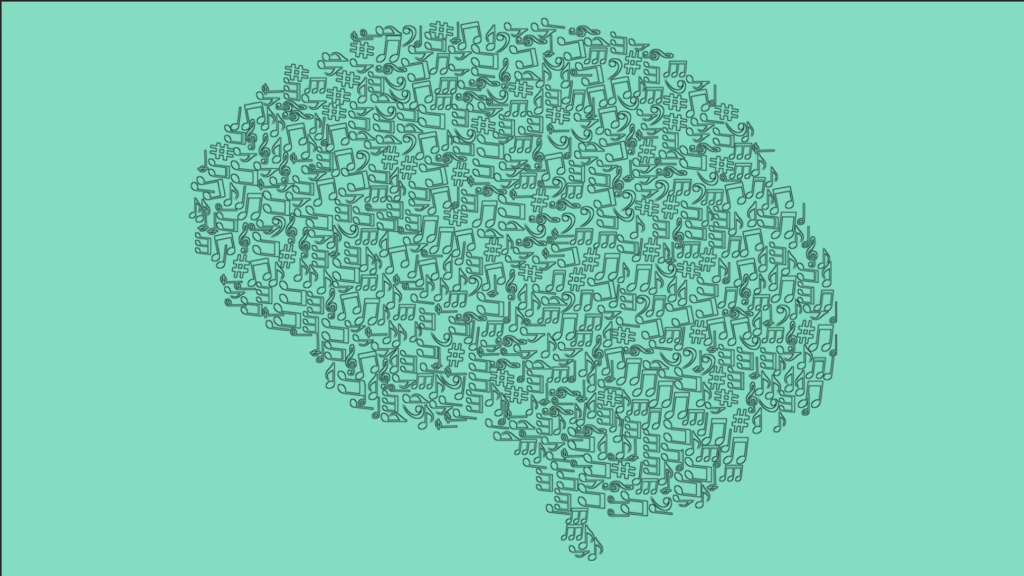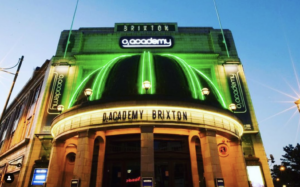FOR MORE INFORMATION, VISIT STRIPPED FM
Listening to music activates multiple areas of the brain. According to Harvard Medical School neurologist and psychiatrist David Silbersweig, MD, “All of these areas must work in concert to integrate the various layers of sound across space and time for us to perceive a series of sounds as a musical composition.”
The activated areas include the hippocampus and amygdala which relate to emotions and memories. The cerebellum which regulates rhythm, movement and timing. The temporal lobe which processes tone and pitch.
It’s by working together – we could say ‘in symphony’ – for these areas to activate the brain’s reward system and recognise music as what it is.
The following image demonstrates in more detail the areas of the brain and how and what music does to stimulate these:

Musicians are said to have acute hearing as well as developed senses of rhythm, pitch, dynamics and timing as well as great control over muscles which non-musicians rarely use. Not only that they also develop neurological and morphological areas that can benefit when both playing and listening to music, as well as in other aspects in life for e.g. coordination, timing, balance.
Studies have indicated the connection between both sides of the brain are better amongst musicians. In a particular study with John Gull orchestral musicians do not demonstrate age-related volume reductions in the brain, which are otherwise common among the elderly. This is because musicians use most of their brain (the visual part when reading scores, the motor cortex when physically playing their instruments, their sensory cortex for proprioception as well as to feel when they touch the instrument and, of course, their auditory cortex when they listen to the music) it will not atrophy as it usually does when people reach an old age.
Is it fair to say that we don’t exercise our brains as much as we do our phones and other devices… so perhaps it’s not just the elderly that learning music will benefit for strengthening memory and improving motor skills?
FOR MORE INFORMATION, VISIT STRIPPED FM




